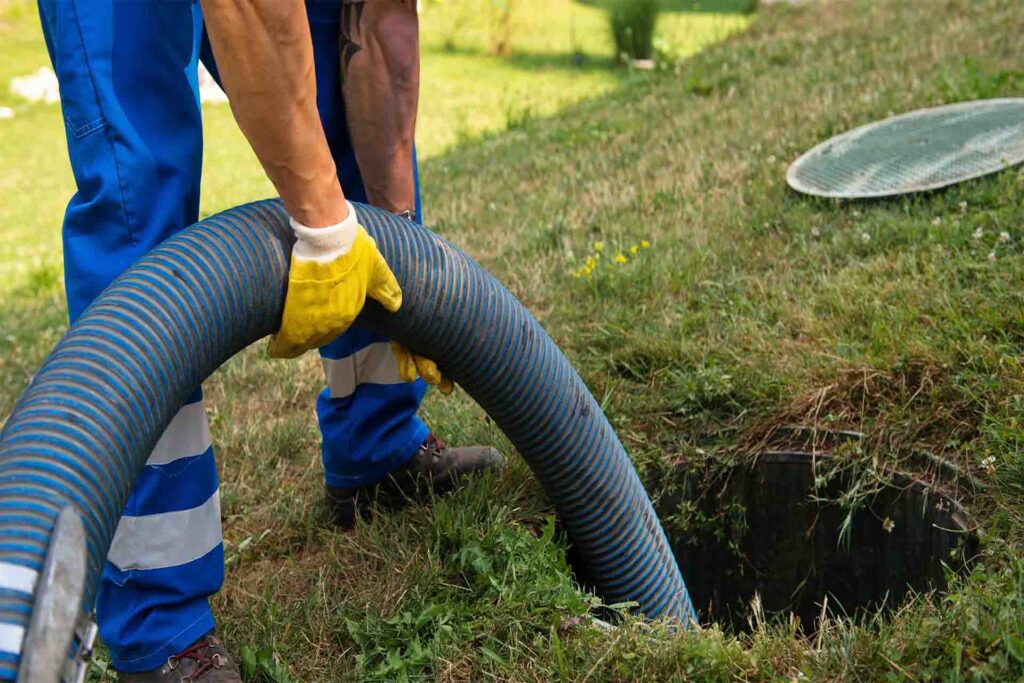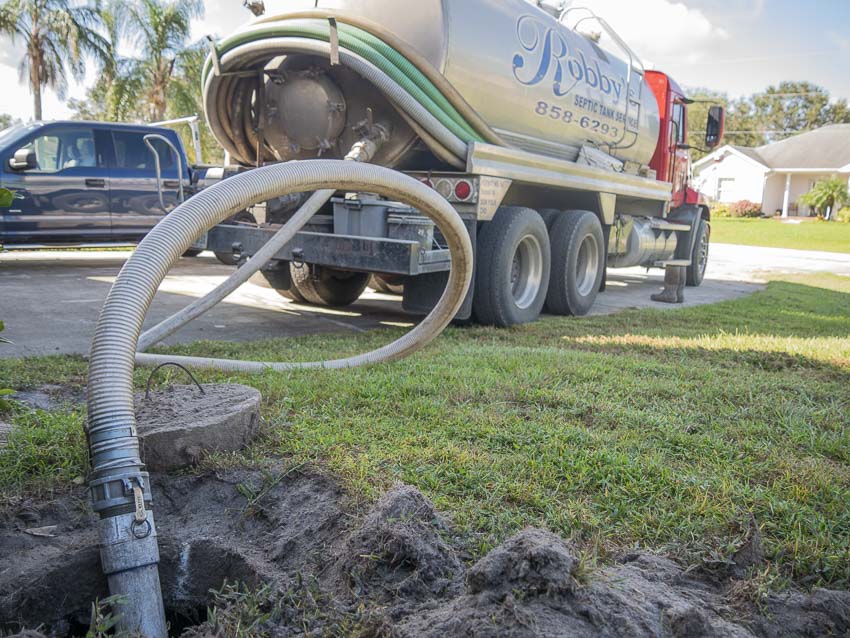Hey there! Did you know that emptying your septic tank is an essential maintenance task that you should never overlook? Well, in this article, we’re going to dive into the average cost of emptying a septic tank and help you understand the expenses involved.
So, if you’re wondering how much it’ll cost you to get your septic tank emptied, you’ve come to the right place. We’ll discuss various factors that can affect the cost, such as the size of your tank, the location, and any additional services you might need. Understanding these expenses will help you budget accordingly and ensure that your septic system remains in good working order. Don’t worry, we’ve got you covered! Keep reading to learn more about the average cost of emptying a septic tank.
Importance of Regular Septic Tank Emptying
Regular septic tank emptying is essential for the proper functioning and longevity of your septic system. Neglecting this important maintenance task can lead to various issues that can be costly and hazardous. Let’s explore the importance of regular septic tank emptying in more detail.
Preventing sewage backups and overflows
One of the primary reasons for regular septic tank emptying is to prevent sewage backups and overflows. When your septic tank becomes too full, it can no longer effectively separate solid waste from liquid waste. As a result, the solid waste can clog the pipes and cause sewage to back up into your home or property. This can lead to unpleasant odors, unsanitary conditions, and potential health hazards.
Maintaining proper functioning of the septic system
Regular septic tank emptying also helps to maintain the proper functioning of your septic system. When your tank is not emptied regularly, it can become overloaded with solid waste, causing the septic system to work harder than necessary. This can lead to system failures, such as clogged drain fields, damaged pipes, and even a complete system breakdown. By emptying your septic tank on a regular basis, you can ensure that your septic system operates efficiently and effectively.
Preventing costly repairs and replacements
Another important reason for regular septic tank emptying is to prevent costly repairs and replacements. When your septic system fails, the repairs can be extensive and expensive. By regularly emptying your septic tank, you can avoid these costly repairs and potentially extend the lifespan of your septic system. It’s important to remember that preventive maintenance is always more cost-effective than dealing with a major system failure.
Factors Influencing the Cost of Emptying Septic Tank
Now that you understand the importance of regular septic tank emptying, let’s discuss the factors that can influence the cost of this essential maintenance task. The following factors can play a significant role in determining the cost of emptying your septic tank:
Size and capacity of the septic tank
The size and capacity of your septic tank will directly impact the cost of emptying it. Larger tanks require more time and manpower to empty, which can increase the cost of the service. Additionally, tanks with larger capacities may require specialized equipment to complete the emptying process, which can also affect the overall cost.
Frequency of emptying
The frequency at which you empty your septic tank can also impact the cost. If you consistently maintain a regular schedule for emptying your tank, it may be less expensive in the long run. However, if you let your tank become overly full before scheduling a service, it may require more time and effort to empty, resulting in a higher cost.
Accessibility of the septic tank
The accessibility of your septic tank can also influence the cost of emptying it. If your tank is located in an easily accessible area, service providers can quickly and efficiently complete the emptying process. However, if your tank is located in a challenging or hard-to-reach area, it may require additional manpower or equipment, which can increase the cost of the service.
Location and distance to the disposal site
The location of your property and the distance to the disposal site can also impact the cost of emptying your septic tank. If your property is located far away from the disposal site, it may require more time and resources to transport the waste, resulting in a higher cost. Additionally, if there are limited disposal options in your area, it may also affect the overall cost of the service.
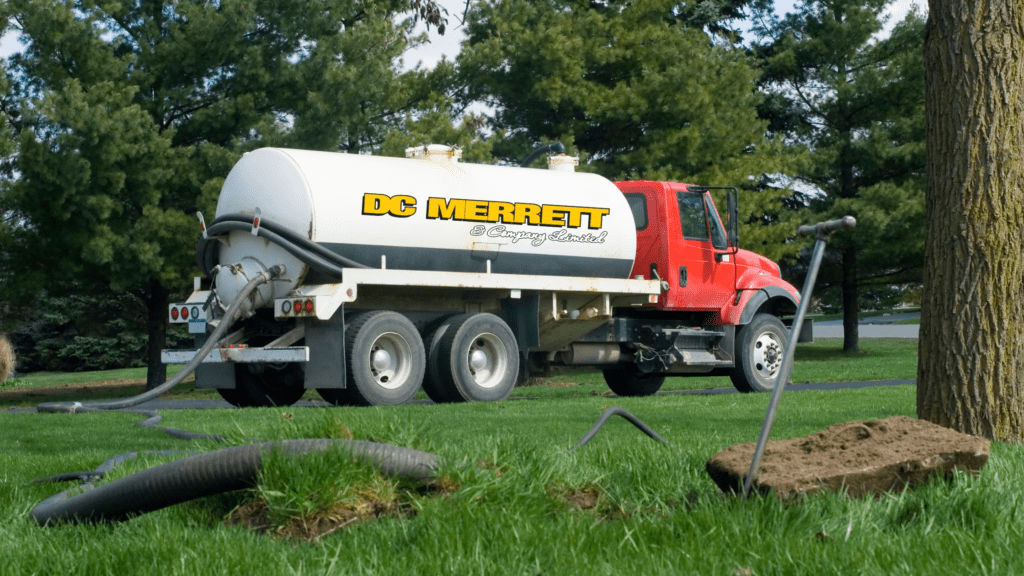
Average Cost of Emptying a Small Septic Tank
Now, let’s discuss the average cost of emptying a small septic tank. Small septic tanks are typically found in residential properties with fewer occupants. The cost of emptying a small septic tank can vary depending on various factors.
Cost breakdown for pumping services
On average, the cost for emptying a small septic tank ranges from $200 to $400. This cost generally includes pumping services, which involve removing the waste from the tank. However, it’s important to note that additional charges may apply for inspections and certifications, which we will discuss later in this article.
Additional charges for inspections and certifications
In addition to the cost of pumping services, you may also incur additional charges for inspections and certifications. These additional services are often required to ensure that your septic system is in proper working condition. Inspections can range in cost from $100 to $300, depending on the complexity of the inspection. Certifications, which are often required when selling a property, can add another $200 to $500 to the overall cost.
Factors affecting the cost for small septic tanks
Several factors can affect the overall cost of emptying a small septic tank. The accessibility of the tank, the location and distance to the disposal site, and the complexity of inspections or certifications can all influence the final cost. Additionally, the reputation and experience of the service provider may also affect the pricing. It’s important to obtain multiple quotes from different service providers to ensure you are getting a fair and competitive price.
Average Cost of Emptying a Large Septic Tank
If you have a large septic tank, typically found in commercial or industrial properties, the average cost of emptying it will be higher than that of a small septic tank. Let’s delve into the details.
Cost breakdown for pumping services
On average, the cost for emptying a large septic tank can range from $500 to $800. Larger tanks require more time and resources to empty, which contributes to the higher cost. The cost breakdown is similar to that of emptying a small septic tank and includes pumping services.
Additional charges for inspections and certifications
As with small septic tanks, you may incur additional charges for inspections and certifications for a large septic tank. The costs associated with inspections and certifications are typically higher for larger tanks due to their complexity and size. It’s important to budget for these additional charges when calculating the overall cost of emptying a large septic tank.
Factors affecting the cost for large septic tanks
The factors that influence the cost of emptying a large septic tank are similar to those for small tanks. The size and capacity of the tank, the frequency of emptying, the accessibility, and the distance to the disposal site are all factors that can affect the final cost. Additionally, the complexity of inspections and certifications may also increase the overall cost.

Comparing the Cost of Professional Services and DIY
When considering septic tank maintenance, you may wonder if you can save money by performing the emptying task yourself. While there are potential cost savings with a do-it-yourself approach, there are several factors to consider before opting for this option.
Benefits of hiring professional septic tank services
Hiring professional septic tank services offers several benefits. First and foremost, professionals have the expertise and experience to ensure that the job is done correctly. They have the necessary equipment and knowledge to handle the waste safely and efficiently. Additionally, professional services often include inspections and certifications, which are important for maintaining the overall health and functionality of your septic system.
Estimated cost of DIY septic tank pumping
If you decide to take on the task of septic tank pumping yourself, there are some costs to consider. You will need to purchase or rent the necessary equipment, such as a pump and hoses, which can range in cost from $100 to $500, depending on the quality and size of the equipment. Additionally, you will need to ensure that you dispose of the waste properly and in accordance with local regulations, which may incur additional costs.
Considerations before opting for a DIY approach
Before opting for a DIY approach to septic tank pumping, there are several considerations to keep in mind. Firstly, you need to have the necessary knowledge and understanding of how septic systems work. Mishandling or improperly disposing of septic waste can lead to environmental contamination and health risks. Additionally, you should be physically capable of handling the equipment and performing the necessary tasks. If you have any doubts or concerns, it’s best to hire professional services to ensure the job is done safely and effectively.
Tips to Reduce the Cost of Septic Tank Emptying
While septic tank emptying is an essential task, there are ways to reduce the cost associated with this maintenance. By following these tips, you can potentially save money in the long run.
Conserve water to reduce the frequency of emptying
One of the most effective ways to reduce the frequency of septic tank emptying is to conserve water. Excessive water usage can overload your septic system, leading to more frequent emptying. By being mindful of your water usage, such as fixing leaks, installing water-efficient fixtures, and using water-saving practices, you can reduce the strain on your septic system and potentially extend the time between empties.
Properly maintain your septic system
Proper maintenance of your septic system can also help reduce the cost of emptying. Regularly inspecting your system for leaks, cracks, or other issues can prevent more significant problems from developing. Additionally, practicing proper septic system care, such as avoiding flushing non-biodegradable items or harmful chemicals down the drains, can help maintain the health and functionality of your system.
Compare quotes from multiple service providers
When it comes time to schedule a septic tank emptying service, it’s beneficial to obtain quotes from multiple service providers. By comparing prices and services offered by different providers, you can ensure that you are getting a fair price for the work. However, it’s important to not solely focus on the cost. Consider the reputation, experience, and customer reviews of the service providers to make an informed decision.
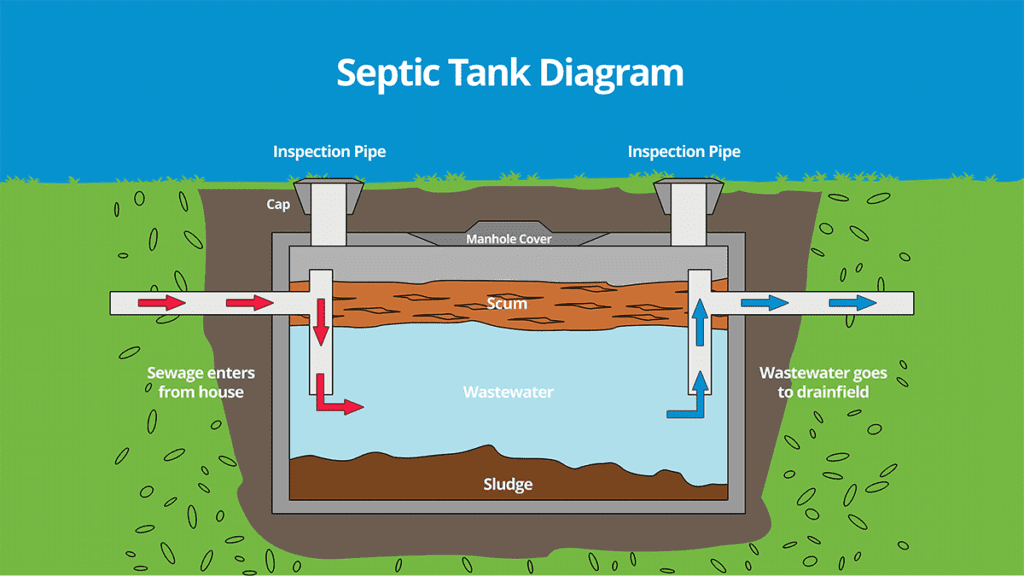
Potential Additional Expenses during Septic Tank Maintenance
While emptying your septic tank is an essential task, there are potential additional expenses that may arise during the maintenance process. It’s important to be aware of these expenses and budget accordingly.
Repairs or replacement of damaged components
During the emptying process, service providers may discover damaged components within your septic system. This can include cracked or collapsed pipes, a damaged drain field, or other issues. Repairing or replacing these components can incur additional costs, depending on the extent of the damage and the required repairs. It’s important to address any issues promptly to prevent further damage and potential system failure.
Upgrading an outdated septic system
In some cases, emptying your septic tank may reveal that your system is outdated or no longer meets current regulations. Upgrading an outdated septic system can be a significant expense that may include replacing the entire system or making substantial modifications. It’s essential to consult with professionals to determine the most cost-effective and appropriate solution for your specific situation.
Emergency service charges
In the event of a septic system emergency, such as a sudden failure or a major blockage, emergency service charges may apply. These charges are often higher than regular service charges due to the urgency and additional resources required to resolve the issue promptly. While it’s not always possible to predict or prevent emergencies, regular maintenance and inspections can help minimize the risk of unexpected system failures.
Understanding the Importance of Regular Maintenance
Regular maintenance of your septic system is crucial for its proper functioning, your health, and the environment. By understanding the importance of regular maintenance, you can prioritize and budget for this essential task.
Preventing health hazards
A properly maintained septic system helps prevent health hazards. When a septic system fails, sewage and harmful bacteria can contaminate the groundwater, potentially causing the spread of diseases and illnesses. Regular maintenance, including septic tank emptying, reduces the risk of contamination and promotes a healthy living environment for you and your family.
Protecting the environment
Septic systems play a vital role in protecting the environment. When properly maintained, septic systems treat and filter wastewater, preventing pollutants from entering natural water bodies. Regular maintenance ensures that your septic system is functioning optimally, reducing the risk of environmental contamination and preserving the quality of our natural resources.
Increasing the lifespan of the septic system
Lastly, regular maintenance can significantly increase the lifespan of your septic system. By regularly emptying your septic tank and addressing any issues promptly, you can prevent major system failures and extend the life of your system. Investing in regular maintenance now can save you significant costs in the long run by avoiding expensive repairs or replacements.
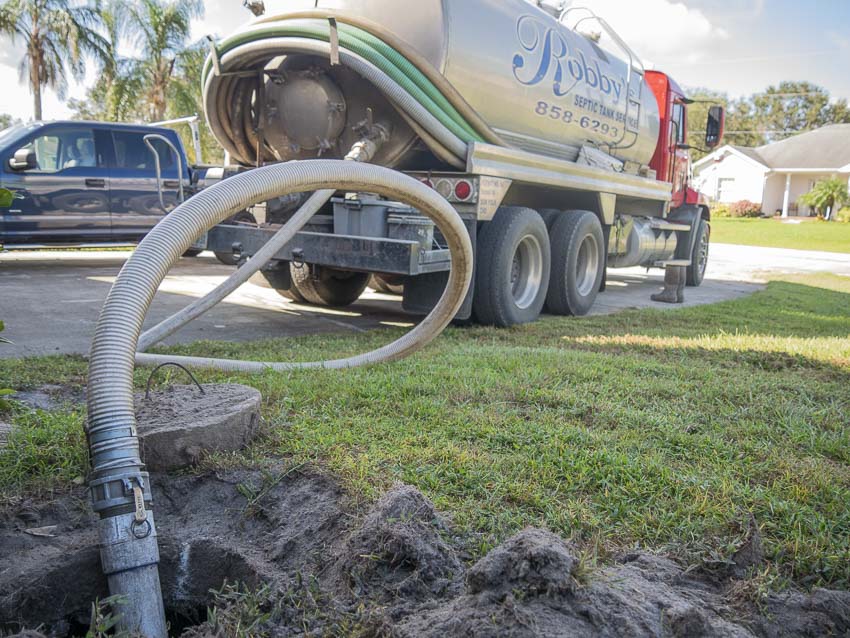
Common Signs Indicating the Need for Septic Tank Emptying
While regular maintenance is essential, it’s important to be aware of common signs that indicate the need for septic tank emptying. By recognizing these signs, you can schedule the service promptly and avoid potential issues.
Slow drainage or backups in sinks and toilets
One of the most common signs that your septic tank needs emptying is slow drainage or backups in sinks, showers, and toilets. If you notice water draining slowly or backups occurring frequently, it may indicate that your septic tank is reaching its capacity. Scheduling a septic tank emptying service can alleviate this issue and restore proper drainage in your home.
Foul odors in and around the property
Another sign that your septic tank requires emptying is the presence of foul odors in and around your property. If you notice persistent sewage smells inside or outside your home, it may be a sign that your septic tank is full and needs to be emptied. These odors can indicate a backup in your plumbing system or a leak in the tank itself.
Pooling water or lush vegetation above the drainfield
Pooling water or lush vegetation above the drainfield can also indicate that your septic tank is in need of emptying. When your septic tank is overwhelmed with waste, it can cause the drainfield to become saturated, leading to water pooling on the surface. Similarly, if the drainfield is overworking due to an overly full tank, it may promote vibrant and lush vegetation above the area.
Conclusion
Regular septic tank emptying is an essential maintenance task that ensures the proper functioning of your septic system and prevents costly repairs and replacements. The cost of emptying a septic tank can vary depending on various factors, such as the size of the tank, frequency of emptying, accessibility, and location. Hiring professional septic tank services offers several benefits but comes at a higher cost compared to a DIY approach. To reduce the cost of septic tank emptying, consider water conservation practices, proper system maintenance, and obtaining multiple quotes from service providers. It’s crucial to budget for potential additional expenses like repairs, upgrades, and emergency service charges. Regular maintenance not only protects your health and the environment but also increases the lifespan of your septic system. Pay attention to common signs, such as slow drainage, foul odors, and pooling water, indicating the need for septic tank emptying. By understanding the importance of regular maintenance and staying proactive, you can ensure the longevity and efficiency of your septic system.
